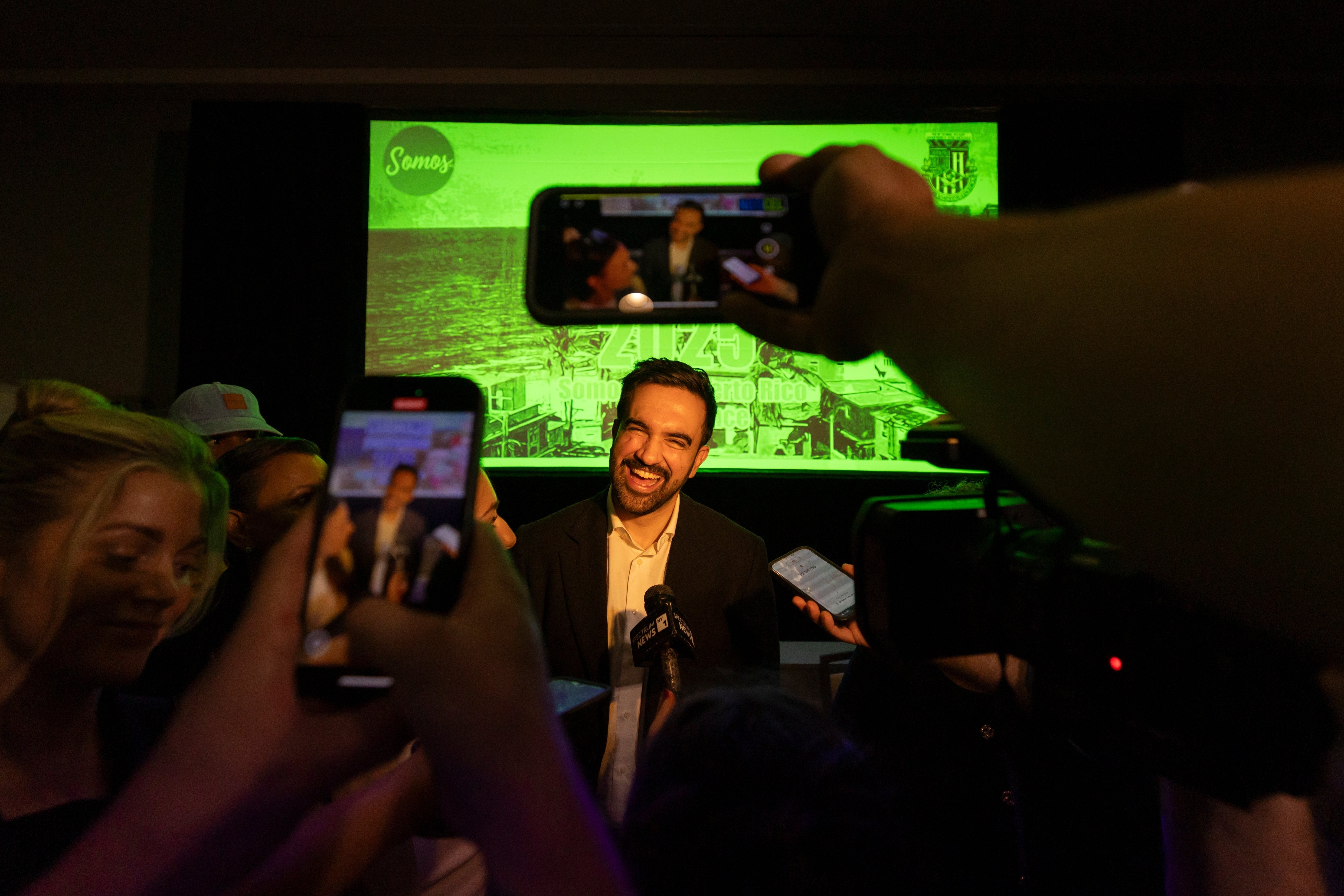President Trump defended his tariffs on Friday, even as the White House announced it was rolling back levies on coffee, tropical fruit, spices, beef and other foodstuffs in part to bring down elevated prices.
“We’ve all suffered from the Biden prices, which were much higher than they are right now, but I’ll be able get them down even lower, at least a little bit lower, possibly, in some cases, a lot lower,” Trump told reporters on Air Force One, before falsely claiming the U.S. currently has “virtually no inflation.”
The president has signed an executive order exempting the goods from the “reciprocal” tariffs he put on most U.S. trading partners earlier this year.
“When you add all of the benefits, the single greatest thing we have right now is the use of tariffs,” he added of his signature economic program, claiming the tariffs were indirectly stopping wars and guaranteeing the U.S. access to China’s rare earth minerals. He also falsely claimed the tariffs have raised “trillions” in revenue, when in fact they have brought in closer to $120 billion.
The White House earlier Friday said the tariff reversal followed “substantial progress” in trade negotiations with foreign nations, while reflecting “current domestic demand for certain products, and current domestic capacity to produce certain products.”
The tariff announcement comes amid political pressure on the president from voters concerned about continued inflation at the supermarket.
President Trump has insisted affordability questions are a Democratic “con job” and prices on “everything” are “way down,” though this is not true.
Inflation rose three percent between September 2024 and September 2025, according to the most recent federal data, which also showed the inflation rate increasing for the last five months of that period. Food prices have largely mirrored broader inflation.
The prices of beef and veal jumped 14.7 percent in September compared to the previous month, a spike observers attributed to factors including tariffs, drought, and a pest impacting herds in Mexico.
Critics of the president saw the tariff change as a tacit admission his policies had been hurting average Americans.
“After lying for months, Donald Trump has finally admitted that his tariffs are forcing Americans to pay more for groceries and making the affordability crisis worse,” Sen. Ron Wyden, the top Democrat on the Senate Finance Committee, told The Wall Street Journal.
Defenders, meanwhile, framed the president as increasing the supply of products not made in sufficient quantities in the U.S.
On Fox News, anchor Jesse Watters claimed the tariff rollbacks were applied to goods such as coffee “because we don’t make coffee in America.”
“That’s all,” he added.

In fact, today’s announcement applies to more than 100 different items, and the U.S. has substantial industries producing some of the named goods in the tariff announcement, such as beef.
Earlier this month, the president suggested on social media that meat producers might be “driving up the price of Beef through Illicit Collusion, Price Fixing, and Price Manipulation” and hammered what he said were “Majority Foreign Owned Meat Packers, who artificially inflate prices, and jeopardize the security of our Nation’s food supply.”
The president has steadfastly insisted the tariffs are a boon to the U.S. economy, despite the widely held economic wisdom that tariffs function like a tax that companies pass on to consumers in the form of higher prices.
Trump has suggested sending a $2,000 tariff rebate check to low- and middle-income Americans, though experts are skeptical the proposal can be accomplished without adding to the national debt or potentially driving inflation, both of which would be political liabilities. Congress has also shown little interest in such proposals.
The Supreme Court is currently weighing whether the president’s emergency tariffs are illegal, after lower courts found he didn’t have the authority to launch them.







